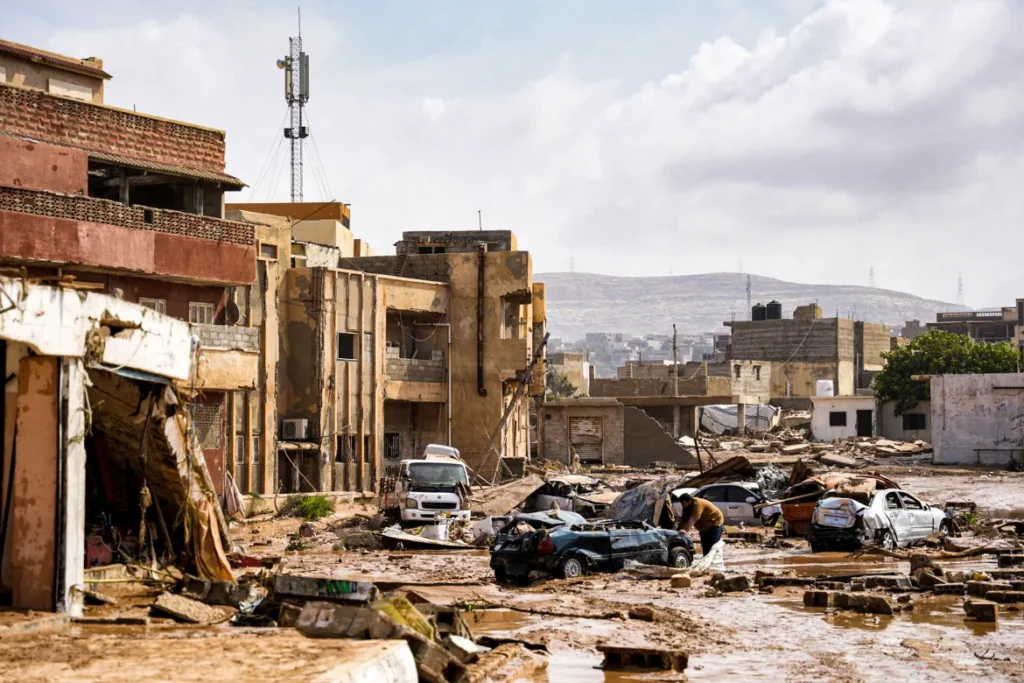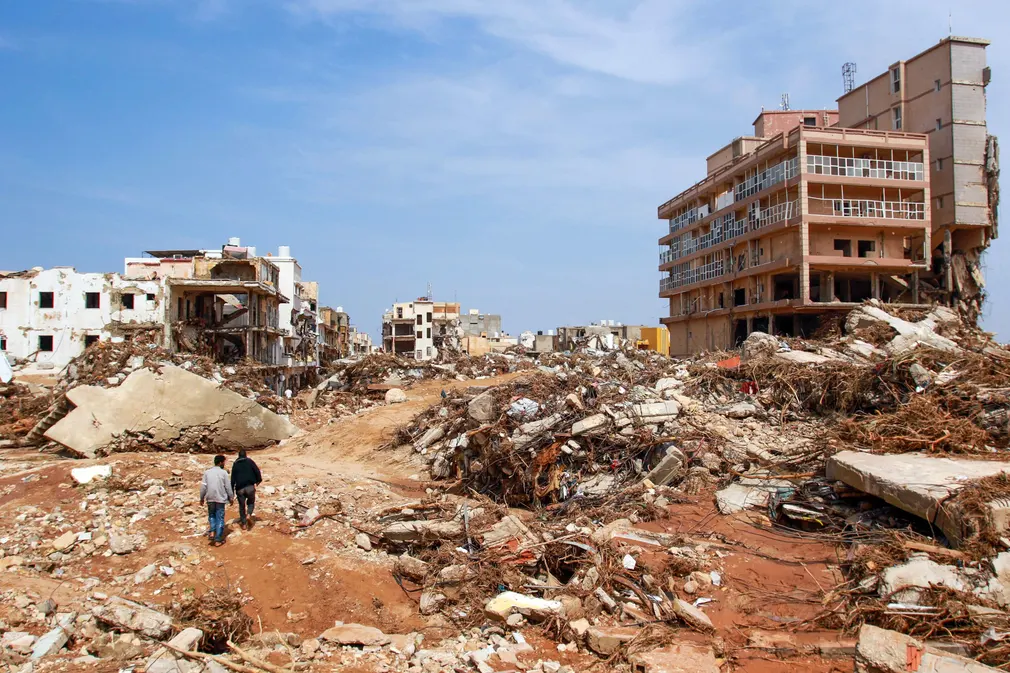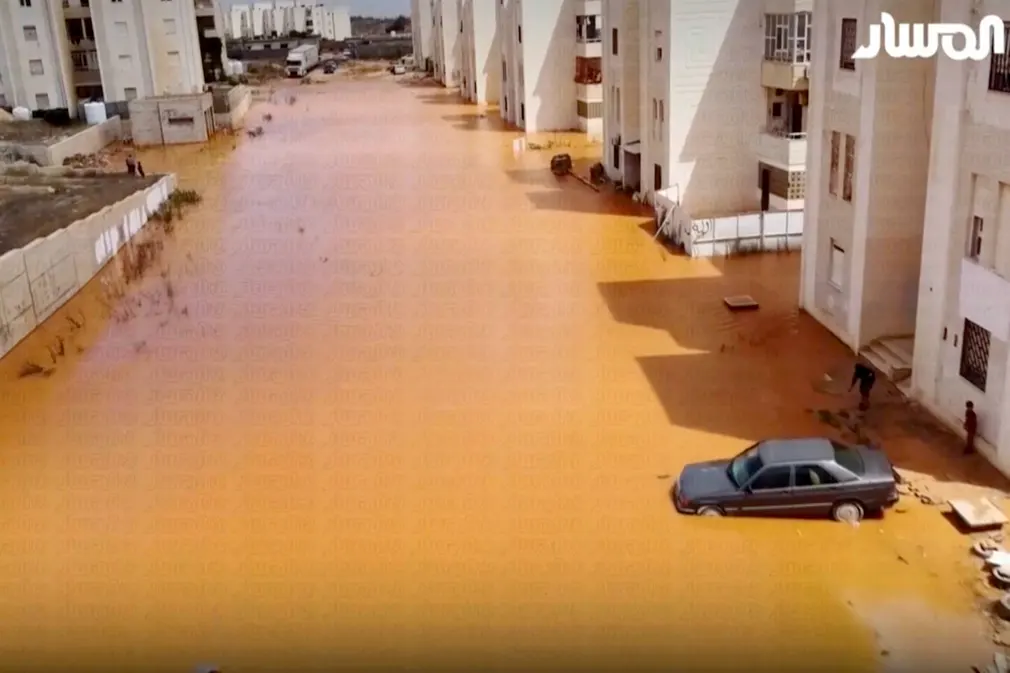Rescue teams in Libya are having a hard time bringing back the bodies of people who were carried away by floodwaters that were like a big wave.
In northeastern Libya, a terrible disaster has unfolded. Heavy rains caused two dams to break, sending even more water into already flooded areas. It is estimated that over 5,000 people have lost their lives, and another 10,000 are still missing. The situation is dire.
Tamer Ramadan, who leads the Red Cross and Red Crescent team in Libya, shared these heartbreaking numbers during a press briefing in Switzerland. She emphasized the enormity of the loss. The interior ministry of Libya’s eastern government reported at least 5,300 people presumed dead, but these figures could not be independently verified by CNN.

Tragically, among those who perished, 145 were Egyptian citizens. The city of Derna, in the east, suffered the most devastation, with around 6,000 people still unaccounted for. Othman Abduljalil, the health minister in the eastern administration, described the situation as “catastrophic” during his visit to the city.
The damage is extensive, with entire neighborhoods washed away. Derna’s hospitals are overwhelmed, and morgues are full, leaving no choice but to place deceased bodies outside. The absence of regular emergency services makes the situation even more challenging.

Emad Milad, a resident of Tobrok, sadly shared the loss of eight of his family members due to the flooding in Derna. He, like many others, is praying for better days.
This disaster was brought about by a powerful low-pressure system, which caused catastrophic flooding in Greece before developing into a Mediterranean cyclone, a tropical-like cyclone, in the Mediterranean. The warmer Mediterranean waters played a role in intensifying the storm, according to climate scientists.
Libya’s already complex political situation, marked by a decade-long power struggle, further complicated the response to this disaster. The country’s divided administrations, one based in Tripoli and the other in the east, have made coordination and risk assessment challenging.
The collapse of two dams worsened the situation in Derna, causing unimaginable damage. Bridges were destroyed, and entire neighborhoods were swept away, ending up in the sea. Communication lines are down, hindering rescue efforts.

This is an unprecedented tragedy for Libya. The storm’s impact has been felt across several cities, leaving dozens of buildings swept into the sea. The country is facing a humanitarian crisis of unprecedented proportions, and international aid and search teams are being mobilized to assist in the recovery.
As we witness this heartbreaking disaster, our thoughts are with the people of Libya. It is a stark reminder of the increasing challenges posed by climate change and the importance of preparedness in the face of such devastating events.
SOURCE:CNN

